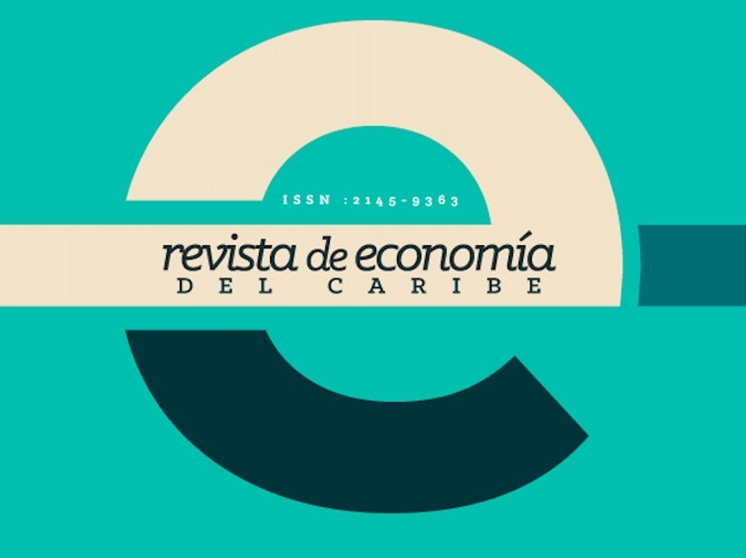Social Mobility in Peru: Impact of Education and the Socioeconomic Environment of the Head of Household (2014-2023)
Keywords:
parental education, social mobility, social inequality, poverty, PeruAbstract
Historically, parental education has been key to the social and economic mobility of their children. This article examines its impact and various socioeconomic variables (sex, age, mother tongue, disability, place of residence and region) on the educational opportunities and social mobility of heads of household in Peru (2014-2023).
Using a Generalized Ordinal Logit Model and the National Household Survey, it is confirmed that parental education is fundamental in the educational level of the head of household, supported by previous studies in Latin America. These findings highlight the need to invest in education to reduce inequalities and build more equitable societies where all people have the same opportunities.
References
Aguilar-Cruz, F. & Pérez-Mendoza, J. (2017). Movilidad Social en México. La educación como indicador de desarrollo y calidad de vida. Revista Ciencias Sociales, 84(17), 664-697. https://produccioncientificaluz.org/index.php/opcion/article/view/23405
Benavides, M. & Etesse, M. (2012). Movilidad educativa intergeneracional, educación superior y movilidad social en el Perú: evidencias recientes a partir de encuestas de hogares. Educación superior, movilidad social e identidad, 51-92. https://www.grade.org.pe/publicaciones/1137-movilidad-educativa-intergeneracional-educacion-superior-y-movilidad-social-en-el-peru-evidencias-recientes-a-partir-de-encuestas-a-hogares/
Bruno-Seminario, A., Córdova-Chuquihuanga, A. & Santos-Arriola (2020). Las lenguas originarias del Perú. Un análisis de su estado desde la multiculturalidad. Revista de Ciencias Sociales y Humanas, 2(3), 92-104. https://doi.org/10.47606/ACVEN/PH0015
Calle, Y. (2016). Transmission of human capital between parents and children in Colombia: A causal mechanism of poverty. Revista de Economía del Caribe (18), 60-91. https://rcientificas.uninorte.edu.co/index.php/economia/article/view/8346/pdf_323
Cuenca, R. & Urrutia, C. (2019). Explorando las brechas de desigualdad educativa en el Perú. Revista Mexicana de Investigación Educativa, 24(81), 431-461. https://www.scielo.org.mx/scielo.php?script=sci_arttext&pid=S1405-66662019000200431
Espinosa, A. & Arrieta, R. (2010). Movilidad social, educación y mercado laboral en el departamento de Córdoba (Colombia). Revista de Economía del Caribe, 5, 103-142. https://rcientificas.uninorte.edu.co/index.php/economia/article/view/1255/795
Formichella, M. (2009). Una explicación de las trampas de pobreza: El circulo vicioso entre el nivel de educación y el nivel de ingresos. Estudios Económicos, 26(52), 49-80. https://www.redalyc.org/pdf/5723/572363593003.pdf
Guillermo, S. & Castañeda, A. (2021). Efectos de los factores macroeconómicos individuales sobre la movilidad socioeconómica en México: análisis mediante la estimación de un Modelo Probit Ordenado Generalizado. EconoQuantum, 18(1), 75-115. https://doi.org/10.18381/eq.v18i1.7197
Huerta, J. (2012). El rol de la educación en la movilidad social de México y Chile. Revista Mexicana de Investigación Educativa, 17(52), 65-88. https://www.scielo.org.mx/scielo.php?script=sci_arttext&pid=S1405-66662012000100004
Instituto Nacional de Estadística e Informática (2024). Perú: Evolución de la Pobreza Monetaria, 2014-2023. https://www.gob.pe/institucion/inei/informes-publicaciones/5558423-peru-evolucion-de-la-pobreza-monetaria-2014-2023
Mendoza-Ponce, F. (2024). La calidad de la educación en el ámbito rural: Una revisión sistemática 2017-2023. Episteme Koinonia, 7(7), 150-167. https://doi.org/10.35381/e.k.v7i1.3727
Ministerio de Educación. (2024). Tendencias. Serie desde 2016. Estadística de la Calidad Educativa. https://escale.minedu.gob.pe/ueetendencias2016
Ríos, J., Angarita, B., Vargas, L. & Azcárate, J. (2023). Factores de movilidad social en un sector rural de Colombia. Revista de Ciencias Sociales, 29(1), 169-185. https://produccioncientificaluz.org/index.php/rcs/index
Rodrigo, L. & Oyarzo, M. (2021). Social Mobility in Chilean youth and their parents a Generational analysis from the perspective of social reproduction. Latin American Perspectives, 2(3), 1-23. https://doi.org/10.1177/0094582X20939103
Sandoval, J., & Hernández, G. (2018). Crítica a la teoría del capital humano, educación y desarrollo socioeconómico. Revista Ensayos Pedagógicos, 13(2), 137-160. https://doi.org/10.15359/rep.13-2.7
Sarmiento-Quispe, E., Quispe-Huayta, E. & Calli-Vilca, L. (2023). Factores determinantes que influyen en el logro del nivel educativo en las mujeres en el Perú 2022. Semestre Económico, 12(2), 5-14. http://dx.doi.org/10.26867/se.2023.v12i2.149
Torres, J., Parra, F. & Rubio, J. (2018). Transmisión educativa intergeneracional en el Perú: un cálculo para las generaciones nacidas entre 1950-1989. Economía, 41(81), 101-124. https://doi.org/10.18800/economia.201801.005
Torres, K. (2023). Actitudes hacia la discapacidad en el ámbito educativo: una revisión sistemática. Avances en Psicología, 31(1), 1-13. https://doi.org/10.33539/avpsicol.2023.v31n1.2879
Uribe, C. & Ramírez, J. (2019). Clase media y movilidad social en Colombia. Revista Colombiana de Sociología, 42(2), 229-255. https://doi.org/10.15446/rcs.v42n2.50749
Williams, R. (2006). Generalized Ordered Logit/Partial Proportional Odds Models for Ordinal Dependent Variables. The Stata Journal, 6(1), 58-82. https://doi.org/10.1177/1536867X060060010
Downloads
Published
Issue
Section
License
I, ____________________________________________, author of the work and/ or article, adult, residing in the city of _________________, bearing the Identity Card/Passport n.° ______________________, issued in _______________________, in command of his/her/their physical and mental faculties, party hereinafter referred to as AUTHOR, signs the following authorization so the reproduction, publication, communication and distribution of the work can be done, under the following terms:
1. That, regardless of existing legal regulations due to the relationship of the parties to this contract, and any other existing legal presumption, the parties agree that the AUTHOR authorizes the Universidad del Norte, with the purpose of reproduce, publish, communicate and distribute the material called in the Revista de Economía del Caribe.
2. That such authorization apply to the copyright of the work, by any means, known or to be known, the public communication of the work, and the distribution of the work, directly or by third parties, purely educational purposes.
3. The AUTHOR undertakes to inform and declare the existence of this authorization and to preserve the right of the journal Revista de Economía del Caribe to the first publication of the work.
4. The AUTHOR states that the article is original and his/her/their exclusive creation, there being no impediment of any kind for the authorization he/she/they is/are giving, responding thereto by any action: claim, plagiarism or any other type of complaint that might arise about.
5. That such authorization is granted for free.
6. The moral rights of the author on the article correspond exclusively to the AUTHOR, in virtue of which, the Universidad del Norte agrees to expressly and rigorously recognize and respect them.





























